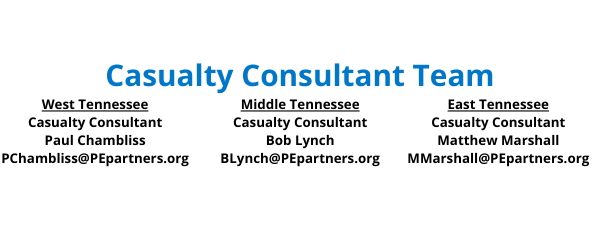Volunteer Exposures for Entities
- 4/7/2022 8:00 am

Volunteer Exposures for Entities
Many of Public Entity Partners’ members rely on volunteers to help them serve the public and their customers. From volunteer firefighters and auxiliary police to planning committees and school boards, there are considerations to ensure that entities are protected from liability exposures and volunteers are well suited for serving in these capacities.
Recently, PE Partners updated information in our online Member Portal to assist our members in exploring the administrative risks of using volunteers, and we also added a sample volunteer application.
To reduce all parties’ exposures to loss, all volunteers should be screened and trained for their specific assignments and provided orientation on the written policies of the governmental entity. Entities should use professional selection techniques, and provide extensive training and a comprehensive orientation process for the role a volunteer will fill. In other words, entities should screen and train volunteers (whose actions carry the same level of liability as an employee) in the same manner as employees.
The orientation process should include training for volunteers on the necessary equipment needed and their proper use to successfully carry out their assigned roles. Aside from auxiliary police and volunteer firefighters, volunteers are not covered by the entity for any medical coverage if injured in the scope of volunteer assignment. Therefore, volunteers do not fall under the remedy provided in the workers’ compensation act for employees. If a volunteer is injured while carrying out an assigned task, the entity and the supervisor may be vulnerable to legal action if the injury can be tied to failure to provide and protect.
The sample volunteer application recently added to our Member Portal contains a release of liability sample paragraph, and it is recommended that the absence of medical insurance is made clear and a release is obtained for all volunteer assignments. For auxiliary police, volunteer firefighters and elected officials, there is an option to purchase medical coverage.
Orientation and training should also address use of a volunteer’s personal vehicle while volunteering. Volunteers who drive their own personal vehicles while performing tasks for an entity are covered initially by their own personal auto insurance in the event of an accident, and their auto liability policy would be exhausted before the entity’s insurance coverage is accessible. Thorough screening and training are recommended for volunteers who are authorized to operate entity-owned vehicles.
Volunteers are an invaluable resource to any organization. With the right protocols and protections in place, they can be of great benefit to your entity and the community as a whole.
Should you have any questions about the Volunteer Application-Sample or Use of Volunteers documents in Public Entity Partners Risk Library, or about volunteer liability exposures, please contact your casualty loss control consultant.

Categories
-
Annual Report
(5)
-
Audit Requests
(2)
-
Board of Directors
(19)
-
Claims
(26)
-
Cyber Extension
(4)
-
Cyber Security
(27)
-
Dividend
(7)
-
EHS Hero & HR Hero
(16)
-
Employment Practices Liability
(26)
-
Excellence In Risk Management Awards
(18)
-
Fireworks
(1)
-
First Responders
(9)
-
Grants
(23)
-
Law Enforcement
(16)
-
Local Government Risk Academy
(4)
-
Loss Control
(105)
-
Member Services
(11)
-
Message From the President
(20)
-
MTAS
(10)
-
Municipal Sewer System
(4)
-
Partnering for Success Webinar Series
(31)
-
PEP Staff
(32)
-
Qualified Immunity
(3)
-
Risk & Insurance Symposium
(42)
-
Safety Program
(56)
-
Scholarships
(20)
-
Social Media
(2)
-
Training
(76)
-
Underwriting
(32)
-
Workers' Compensation
(27)
- Annual Report (5)
- Audit Requests (2)
- Board of Directors (19)
- Claims (26)
- Cyber Extension (4)
- Cyber Security (27)
- Dividend (7)
- EHS Hero & HR Hero (16)
- Employment Practices Liability (26)
- Excellence In Risk Management Awards (18)
- Fireworks (1)
- First Responders (9)
- Grants (23)
- Law Enforcement (16)
- Local Government Risk Academy (4)
- Loss Control (105)
- Member Services (11)
- Message From the President (20)
- MTAS (10)
- Municipal Sewer System (4)
- Partnering for Success Webinar Series (31)
- PEP Staff (32)
- Qualified Immunity (3)
- Risk & Insurance Symposium (42)
- Safety Program (56)
- Scholarships (20)
- Social Media (2)
- Training (76)
- Underwriting (32)
- Workers' Compensation (27)